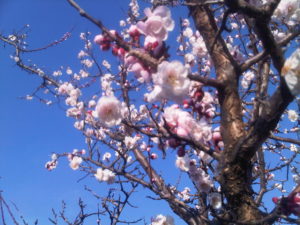What Makenaide and You’ll Never Walk Alone have in common, and why Japanese people like the former song
On 11th March, an earthquake of magnitude 9.0, the biggest in Japan’s history, struck Tohoku region, north-east of Tokyo. It caused severe damage to the area, killing thousands of people; there are still thousands of people missing; and survivors are left without homes. In such a difficult time, music can often help and encourage people. And many Japanese people would think this is one of the songs they choose to play and sing now: Makenaide.
Most of the Japanese people have heard of this song. It was released in 1993 by ZARD, a J-pop group. It became a million seller. This popular song is to Japanese people what You’ll Never Walk Alone is to British and American people. Indeed, those two songs have something in common.
For one thing, there is an aspect of prayer or comfort. They are often played after a disaster or tragedy happened. A FM radio station in Tokyo played Makenaide after the devastating earthquake. Supporters of Liverpool, an English football club, sing You’ll Never Walk Alone to pay tribute to the people who lost their lives in the Hillsborough disaster. Recently, fans sang it after a European football match between Bayern Munich and Inter Milan, in which a Japanese football player had played, to show their supports for Japan.
Both of the songs have strong links with sport. Japan’s National High School Baseball Championship used Makenaide as its theme song before; in popular 24-hour TV, a charity project presented by a Japanese TV broadcaster every summer, the song is always sung to encourage a runner who runs long distances throughout night and day to finish the goal. You’ll Never Walk Alone is a sporting anthem: supporters of many football clubs around the world, especially in Europe, sing it.
For another, these songs reflect hard times. Japan just entered into “lost decade” in 1993 after the bubble burst. You’ll Never Walk Alone was first created for musical, Carousel, in 1945, just after the Second World War, which left Britain devastated even though they won.
There is a difference between the two songs, however. While Makenaide is no doubt a pop song (J-pop, literally), the most important aspect of You’ll Never Walk Alone is that it is religious. The latter even sounds sacred: after all, it is an anthem, which is derived from antiphon. That explains why it was sung in the Obama inauguration in 2009.
That needs to be thought in the context of Japan in the 1990s. At that time, popular culture was clearly widespread there and other developed countries, which is partly attributed to a decline in religious values. In this cultural context, it is not surprising that Makenaide is not similar to the English song.
But why has it gone down well with Japanese people for more than a decade? It is because its lyrics are straight and easy to sing. The tune is often played in athletic festivals of elementary or junior high schools in the country: it sticks in children’s ears.
More important is the meaning of the song. Makenaide means gannbare (meaning in Japanese work hard or don’t give up). In other words, it gives people a sense of patience and of effort to do something. Listening to it may even unconsciously develop stoicism, which foreign observers applaud these days. With those aspects of the song, it brings Japanese people together. That is why they like it. The same idea can be applied to You’ll Never Walk Alone.
With the catastrophic earthquake, tsunami and a nuclear crisis threatening millions of people there, now is the time for Japan to cooperate. “Don’t give up until the end”, the song says. Indeed, it’s too early to do so.■

Ryo Kubota is a staff writer at Transpheric Management in Tokyo as well as a freelance writer. He has covered Sports for the Nippon Newspaper Company in Tokyo and teaches at a private tutoring school in Iruma, Japan. Having studied in both Tokyo and England in the areas of sociology, he has a keen interest in the world at large.









